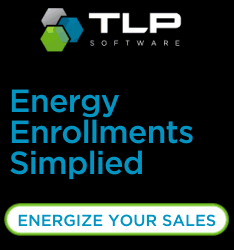|
|
|
|
|
PSC Staff: Ratepayer Support For Retail Supplier Load Shaping Pilots Should Be Limited
The following story is brought free of charge to readers by EC Infosystems, the exclusive EDI provider of EnergyChoiceMatters.com
Staff of the Maryland PSC said that any ratepayer support to retail suppliers participating in a load shaping pilot should be limited to EM&V
See background on the RFP here
In seeking comments on a draft RFP, the PSC noted that retail suppliers may be able to access ratepayer funds for EM&V. The PSC had further stated, "Bidder may be able to access ratepayer funding through existing utility efficiency or demand response programs. This support would be available only for approved efficiency measures under the existing EmPOWER plans or participation in existing approved demand response programs."
In comments on the draft RFP, PSC Staff said, "Ratepayer support for the pilot should be limited to EM&V. Staff opposes using ratepayer funds for any purpose other than EM&V."
"Allowing bidders to use EmPOWER Maryland funds is concerning because these funds are typically used to provide incentives for customers, not suppliers," Staff said
In contrast, retail suppliers said that not permitting retail suppliers to access ratepayer funds for marketing of the pilot programs would provide a competitive advantage to previously reported utility-supplied Time of Use pilots approved by the PSC
For example, Direct Energy stated, "The utilities in their programs have included, and spent, substantial marketing dollars to cover tasks such as direct mail (brochures, postcards, and welcome kits), creative design and program management (including design of all print and online materials and ongoing communications with customers; website and online tools such as a calculator; collateral and education Information; bill inserts; and community outreach materials). While the utilities are likely to seek recovery of these costs from ratepayers in future rate cases, suppliers participating in the program must recover their costs directly from customers which in turn increases the rates suppliers may offer and may make the products less desirable from a customer’s prospective."
The Retail Energy Supply Association noted that, "If a supplier budgeted $1.4 million for pilot program costs and enrolled 1,000-5,000 customers, the supplier would have to recover $280 - $1,400 per customer in addition to the actual commodity costs just to break even. The availability of ratepayer cost recovery outside of the SOS TOU rates for the utility pilot favors the utility SOS pilot program over the supplier programs. This disparity reinforces the need for sufficient incentives, including marketing support, for suppliers to invest in the retail supplier pilot program. RESA also recommends that the Commission waive the 5,000-customer cap to enable suppliers to enroll a sufficient number of customers to support the supplier’s program participation costs."
The Retail Energy Supply Association and Direct Energy, in separately filed comments, both proposed that the Commission provide for utility marketing support or supplier/utility joint marketing for the retail supplier pilot, with both citing as an example of the marketing of supplier-offered TOU pilots at PECO
In contrast, the Office of People's Counsel said that, "Any ratepayer support provided to retail suppliers must be closely scrutinized and only be made available for very limited expenses."
Several suppliers raised concern with the draft RFP's statement that, "a signature on the supply contract document" is required for all enrollments. Suppliers generally said that such requirement is inconsistent with existing enrollment regulations, including exemptions to the signature requirement under the Maryland Telephone Solicitations Act (MTSA).
Direct Energy explained that, "An example of how this may come into play during the course of the pilot program is if a supplier were to market the program to its existing customers. Under Md. Code § 14-2202(a)(2) (Commercial Law), the MTSA does not apply to telephone transactions where the supplier '[h]as made a previous sale to the consumer; or … [h]as a preexisting business relationship with the consumer.' Another exemption that is commonly used in the market today is if the customer enrolls with the supplier 'pursuant to an examination of' a brochure, advertisements, etc. that contains certain information. Md. Code § 14-2202(a)(5) (Commercial Law). As another example, a supplier marketing to customers under the pilot may want to initiate a direct mail campaign that encourages customers to call the supplier to obtain more information and to enroll. The MTSA does not apply to inbound calls; yet, Section 4A would require the supplier to send the complete contract to the customer and obtain a signature."
RESA noted that under the draft RFP's language, it is also unclear whether electronic enrollments (internet contracts) under COMAR 20.53.07.08(C)(3) would be allowed.
OPC said that, "All Pilots Must Adhere To Strict Consumer Protections."
"[B]efore a customer enrolls in the pilot, the supplier should be required to provide the customer with a complete copy of the supply contract, reasonable time to review the document before requesting or acquiring the customer’s consent to the supply contract and pilot participation, and provide the customer with a hardcopy of the signed contract. OPC is aware of an increase in the use of e-signatures by suppliers during the customer enrollment process, and believes that all customers, especially those without access to electronic mail services, should have access to a hardcopy of the contract. This is particularly important with a new rate design that customers are not familiar with," OPC said
Concerning the selection of suppliers, CleanChoice Energy, Inc. said that, "CleanChoice suggests that Proposals should be awarded to at least four suppliers so that the pilot is not limited to one or two of the larger retailers. This will ensure that the Pilot encourages a variety of solutions and technologies to be developed and used."
OPC proposed that suppliers post a security deposit for the pilot.
"OPC proposes that the Commission require a bidder to post a security deposit in the amount of $15 times the bidder’s maximum initially targeted participant threshold that the bidder commits to enrolling or the maximum threshold specified by the Utility’s EM&V contractor, whichever is greater," OPC said
Suppliers generally sought billing flexibility under the pilot, to use supplier consolidated billing, allow on-bill financing, or, in the alternative, allow non-commodity products under the pilot (enabling technology and energy efficiency measures) to be billed under utility consolidated billing (which is limited to commodity costs currently)
The Maryland Energy Administration supported supplier consolidated billing in its comments on the draft.
"Any energy efficiency program should be provided on a consolidated bill and MEA encourages any supplier to provide consolidated billing," MEA said
"With regard to financing of energy efficiency improvements, MEA believes that the mechanism of on-bill lending should be thoroughly explored; and that this RFP can provide a good venue for such exploration. In brief, on-bill lending utilizes the bill as a repayment vehicle, unifying and simplifying the process for the customer. Variations include utility lending, third party lending, and tariffed upgrades," MEA said
PC44
ADVERTISEMENT Copyright 2010-16 Energy Choice Matters. If you wish to share this story, please
email or post the website link; unauthorized copying, retransmission, or republication
prohibited.
Retail Suppliers Seek Change To Signature Requirement
April 10, 2019
Email This Story
Copyright 2010-19 EnergyChoiceMatters.com
Reporting by Paul Ring • ring@energychoicematters.com
NEW Jobs on RetailEnergyJobs.com:
• NEW! -- Retail Energy Operations Analyst
• NEW! -- Retail Energy Operations Specialist
• NEW! -- Account Manager, Energy Choice
• NEW! -- Business Development Manager
• Chief Operating Officer -- Retail Supplier
• Retail Energy Channel Manager -- Retail Supplier
|
|
|
|









